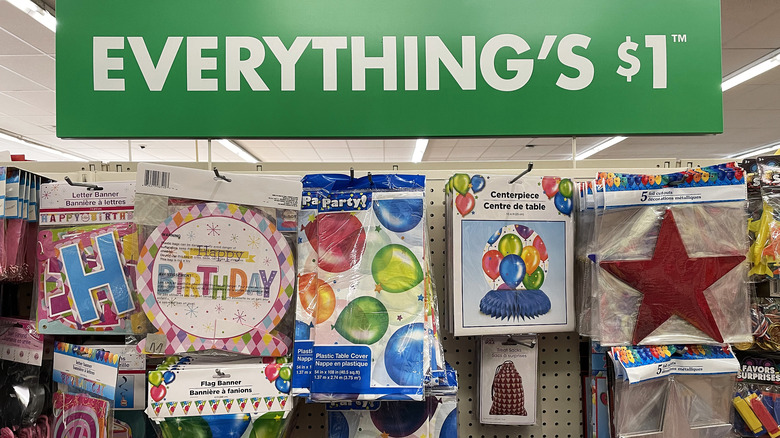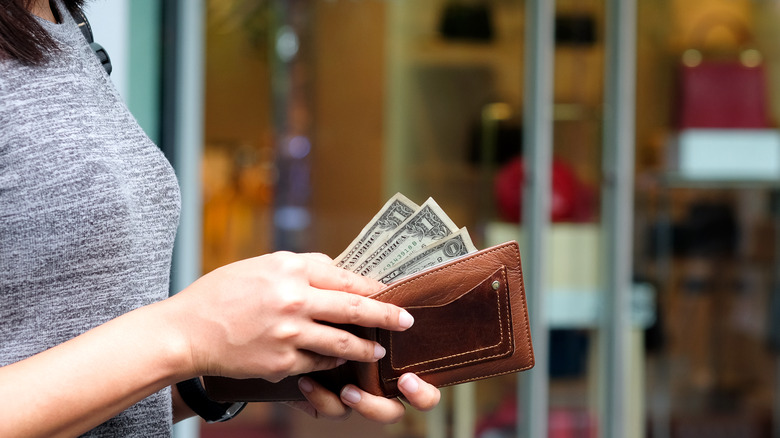Why Dollar Stores Make Customers Feel Like They're On A 'Treasure Hunt'
We can all appreciate a good bargain, so naturally, a dollar store find provides a satisfying thrill. These stores and other discount shops frequently sell their own private brands, which is how dollar store food is so cheap (via Insider).
However, low prices don't always mean the products are great. According to The Progressive Magazine, many dollar stores swoop in on real estate in areas deemed food deserts. Because people living in these areas don't have easy access to fresh produce and other necessities, they have to make do with what they can find. Here's where dollar stores become problematic. Their food and snacks are frequently expired and packed with sugar and other additives.
So why do we keep going back? As it turns out, like many types of stores, dollar stores use human psychology to draw us back time and time again. They'll use every trick in the book to get customers to spend money, per Insider.
We love the thrill of the hunt
Dollar stores take advantage of not only our love for a great deal, but also the thrill of finding limited and highly desirable items. People go crazy when a social media influencer drops a limited-edition makeup collab, and certain dollar store items are quite similar in concept.
This need to snatch up an item before it's gone is exactly what stores are playing to. Reuters says Dollar General in particular started its "treasure hunt" sales to take advantage of how "customers may feel the need to buy these products immediately because they may not be available the next day." This tactic involves having a greater variety of products that change often throughout the year. The 'treasure hunt' is also effective because e-commerce sites, a big competitor for dollar stores, cannot replicate the deal (via Reuters).
By having a few new products each day, these stores can invoke in customers a sense of FOMO (fear of missing out). We don't want to miss a great sale, so we end up coming back, even if we don't need the thing that's on sale. And then while we're there, we see another item we want, and another, and so on. Next thing you know, you have a basket full of things you don't need. Needless to say, this tactic works out extremely well for the stores.

